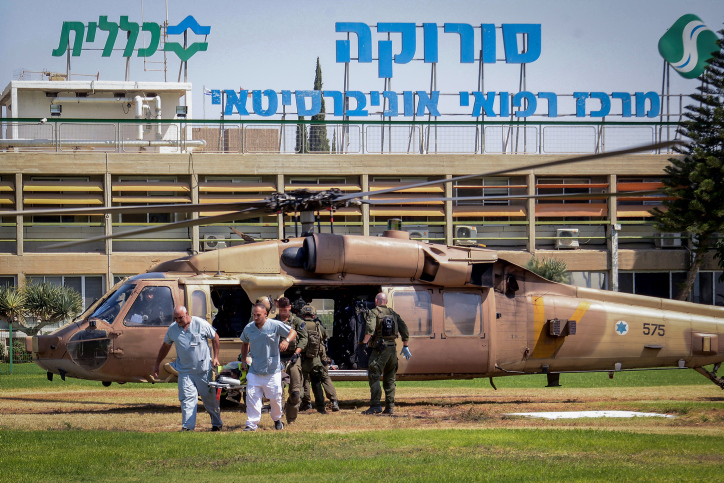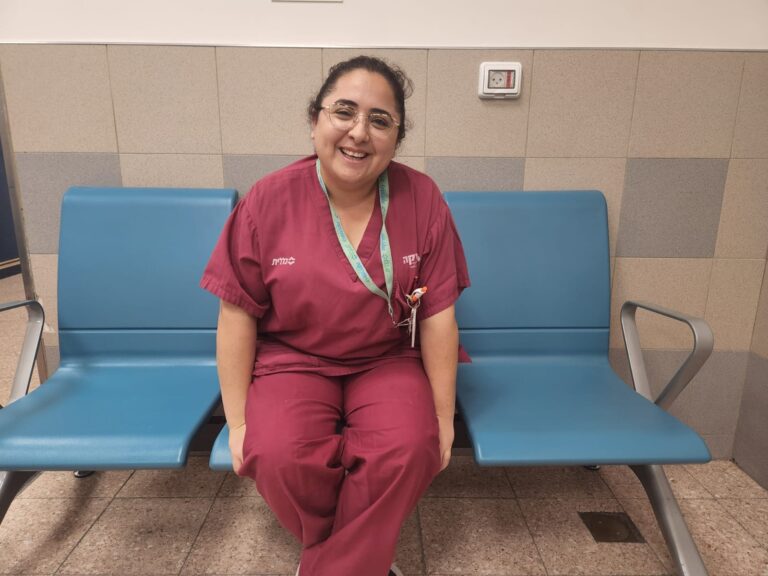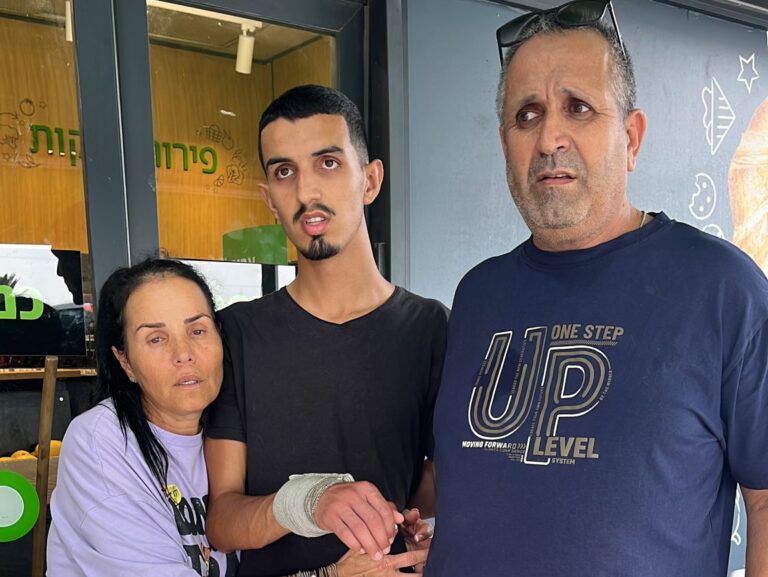
"I take off the rings of murdered people and write death certificates. I've started to be happy when I hear from patients who scream in pain because everyone who screams is still alive," Nehama Aharon, 31, a nurse in the emergency room at Soroka Medical Center in Be’er Sheva, tells Davar. “But the feeling is that we need to be strong for the soldiers who are at the front. I can't put too much weight on my feelings about the horrible things I see. With all the pain and shock, it is very important to me to continue to be useful."
Aharon, from the southern town of Yerucham, is not a psychologist, but she finds herself providing emotional comfort to the injured at the hospital. "We try to talk to the patients who can communicate, to give them information about what is happening to them. A patient who arrives in trauma does not understand what happened to them and what is happening around them. I try to reduce the uncertainty, explain to those who have an injured leg that they have an injured leg and that we are treating the injury,” she says.
Along with the rest of the medical staff at the hospital, Aharon is working in an emergency format: 12-hour shifts followed by 12 hours of rest. On Saturday, Oct. 7, even before the mass casualty event was officially announced, some staff members who had finished their night shift continued working into the morning hours. In the days that followed, Soroka staff members have been working closely with medical workers from hospitals in Israel’s northern and central regions who volunteered to help. The volunteers who arrived did so despite Soroka management announcing that there was no need for backup for the medical teams.

"There is a very strong feeling that the whole staff is together in this story,” Aharon says. “This morning I saw a woman who had come to provide auxiliary support to the hospital with drooping eyes. I asked her how she was and she said that her son was kidnapped to Gaza. There are staff members who were evacuated from their homes near the Gaza strip, there are others who travel to Soroka from Tel Aviv or the Dead Sea area, there are mothers with small children whose husbands were drafted into the reserves and they are now working 12-hour shifts while they maintain a home and children alone. Many of the nurses are residents of Rahat, Ar’ara, and other Bedouin neighborhoods. Some of them don't have alarms and there are no safe rooms in the houses in their neighborhoods."
Even given the complex situations in which many staff members find themselves, they are still helping beyond their official duties at the hospital. Every day, Aharon brings donations to the hospital for the families of the wounded and for the soldiers that she herself collected from her neighbors in Yeruham.
Elsewhere in the hospital, Segal and Ronen Ya’a from Kfar Aza are taking care of their son Yiftah, who went through surgery on his hand after being injured in Saturday’s attack.
"We entered the safe room in the house following the alarms,” Segal says, recounting Saturday’s events. ”Our son lifted the shutter to see the interception of the missiles, and saw drones and terrorists.”

"We called the security team and reported the intrusion of terrorists, and Yiftah told us to go into the safe room in the house, and even then he acted like a hero, and closed the doors of the safe room with handcuffs," Segel says. "Around 8 o'clock we heard voices inside the house. At one point we were already begging them to drop a bomb on our house because we didn't know if we would survive, and we wanted them to at least kill the terrorists, because we had no way to fight them. When they heard us talking on the phone, they left, but later came back."
"If Yiftah hadn't locked the safe room in advance, they would have gone in there," Ronen says. "They tried, they had hammers, M16s. We had nothing. They shot into the safe room through the handle. We were locked up for almost 30 hours in the safe room without water. We only left on Sunday at 11:00 a.m."
"There was only one other family from the neighborhood that survived,” Ronen continues. “All the rest perished. They were shot inside the safe rooms. Had the safe rooms been locked, they would be saved. We left the house with nothing, luckily there is a credit card in the phone today so we can get by a bit. We don't know what we will do now and where we will go when Yiftah is released from the hospital."






